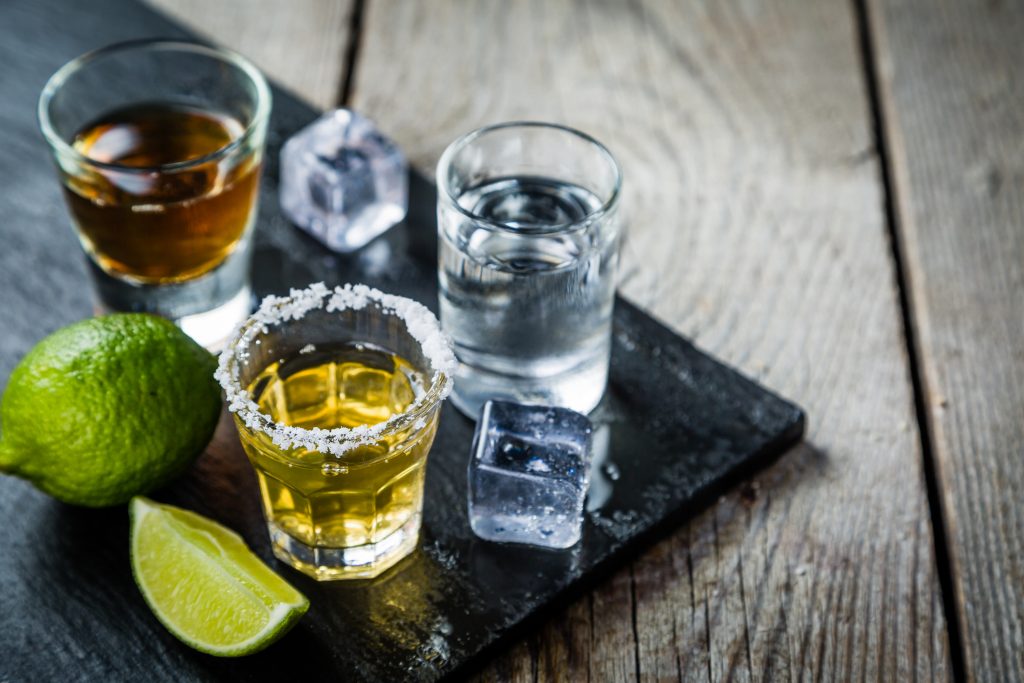We are going through a drug renaissance right now — cannabis is becoming legal across the United States, nicotine has become prevalent among high school and college students and psychedelics are finally being researched again. Yet, there is a missing piece here, the vile elephant in the room: ethanol, more commonly known as alcohol.
Aside from drinking, ethanol is used as a solvent in the synthesis of organic chemicals and as an additive to gasoline for cars. Sounds delicious to me. How has drinking this become so idolized? This is especially interesting when looking at the language around addiction. Those addicted to opiates are called opiate addicts and those addicted to nicotine are called nicotine addicts. But alcohol addicts? They’re called alcoholics. They are personally branded and attacked; it is implied they weren’t able to control themselves around alcohol like “we” can. We feel the need to draw a line between them and us.
Our unhealthy relationship with alcohol is further evident in how we react to those trying to quit it. If one of us stops drinking alcohol, then the quitter can be perceived as passing judgment on the rest of us, whether they actually are or are not. Say John Doe binge drinks twice per week and he says he drinks too much. Well, the rest of us drinking that much or more will feel threatened by his proclamation. Equally so, if Jane Doe says she’s trying to escape the throes of alcohol, one of her friends will absolutely offer her a drink the next time they party. “Have a drink, what the hell?” It’s peer pressure at its finest. If a cigarette smoker is trying to stop using nicotine, we wouldn’t offer them a Juul hit, we’d congratulate them for trying to stop a bad habit. Why must we automatically shame our courageous friends who try to escape alcohol?
“But, alcohol tastes so good!” one might say. Does it, though? Well, 200-proof ethanol, aka 100-percent alcohol, will kill you, and that stuff smells like hand sanitizer. So, why do we think alcohol tastes good? Mixed drinks taste good from the sugar and other additives to the alcohol, not the alcohol itself. Beer and wine? From a young age, we are told that it’s “an acquired taste.” Our parents give us a sip, our faces pucker and they assure us that it’ll be delicious in 10 years. Acquired, alright. We tell ourselves that we like the taste, even though we don’t at first. We see our parents drinking after work “to relax” and we can’t have it, so that makes us want it even more.
And then there’s the constant advertising of how amazing alcohol is. I recently saw a Coors Light advertisement propose that I “open up a can of chill.” What’s so chill about alcohol? Beer commercials show these perfectly sculpted bodies on a beach or rooftop bar cracking open a cold one. This implies that to have fun and look great, one must drink ethanol. Or liquor. Dos Equis’ wizened old man offers intelligence through the television. Thanks, 80-proof ethanol dude, but alcohol-related issues are the third-leading preventable cause of death, costing the United States nearly $224 billion per year.
With continuous use of alcohol, the brain reduces the amount of dopamine it usually makes due to the artificial spikes from alcohol. This lack of dopamine interferes with daily happiness, causing the user to return to alcohol for another hit of dopamine. According to the Centers for Disease Control and Prevention, drinking any type of alcohol can lead to six types of cancer, cirrhosis of the liver and death from overdose. Ethanol is broken down into acetaldehyde, which is a carcinogen, damaging cell DNA and causing cancer. We have been lied to, told wine is good for one thing and beer is good for another. Yes, there are antioxidants in wine, but there are also antioxidants in many plants that don’t come with a known carcinogen like ethanol. It is insane that alcohol’s carcinogen status is not communicated at all.
Then, we are tricked into thinking alcohol is a necessary social lubricant to meet new people and have a good time. Our inhibition to say or do stupid things is lowered and our entire nervous system is depressed. We aren’t fully present with our friends and our memory of the night before could be foggy. Why would we purposefully inhibit the full potential of our time together? I know I have done this many times myself, but I’m not sure it was worth the cost of me being far louder and more dulled than I usually am.
I once thought there was some good to having an occasional drink, or more, but it’s clear we’ve been lied to. The possibility of uncomfortable encounters and all other awkwardness that comes with human interactions is definitely better than the consequences of alcohol.
Nicholas Walker is a senior majoring in biomedical engineering.



